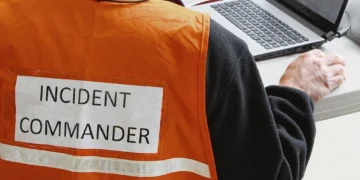Which Partner Is Often The First To Arrive And Last To Leave The Incident Site Of A Disaster?
A. State government
B. Local government
C. Federal government
D. Private sector
The answer is (B): Local government; Local government is often the first to arrive and last to leave the incident site of a disaster.
Below is the complete detail about that, you should continue;
During times of crisis and disaster, it is the local government and police who take on the responsibility of being the first to arrive and the last to leave the incident site.
Their tireless efforts, dedication, and expertise play a crucial role in coordinating emergency response efforts, ensuring public safety, and restoring normalcy to affected communities.
This article explores the comprehensive role of local government and police as the primary first responders in disaster situations.
The Role Of Local Government In Disaster Response
1. Emergency Preparedness
- Local government agencies develop and implement comprehensive disaster preparedness plans.
- They conduct risk assessments, identify vulnerable areas, and devise strategies to mitigate potential risk
- They collaborate with various stakeholders to establish communication systems, evacuation routes, and emergency shelters.
2. Incident Command And Control
- Local government entities establish an incident command structure to effectively manage and coordinate response efforts.
- They designate emergency management coordinators who serve as the point of contact for other agencies, organizations, and the public.
- They establish emergency operation centers to monitor the situation, make critical decisions, and allocate resources.
3. Public Warning Systems
- Local government agencies disseminate timely and accurate information to the public through alert systems, media channels, and social media platforms.
- They issue evacuation orders, advisories, and safety instructions to ensure the well-being of residents.
- They provide information on shelter locations, emergency services, and relief efforts.
4. Evacuation And Shelter Management
- Local government authorities coordinate the orderly evacuation of affected areas.
- They establish and manage emergency shelters, ensuring the provision of basic necessities and medical care.
- They facilitate the registration and tracking of evacuees, ensuring their safety and well-being.
5. Resource Coordination And Support
- Local government agencies collaborate with state, federal, and non-governmental organizations to pool resources and coordinate relief efforts.
- They mobilize emergency response teams, including search and rescue units, medical personnel, and firefighters.
- They facilitate the distribution of essential supplies such as food, water, medical aid, and temporary housing.
The Role Of Police In Disaster Response
1. Public Safety And Security
- Police departments maintain law and order during disaster situations, ensuring public safety and preventing looting or other criminal activities.
- They establish security perimeters, control traffic, and manage access to affected areas.
- They provide crowd management and facilitate the safe evacuation of residents.
2. Search And Rescue Operations
- Police personnel, including specialized units such as SWAT teams and K-9 units, are actively involved in search and rescue missions.
- They locate and extricate survivors, provide medical assistance, and coordinate with other rescue teams.
- They support evacuation efforts by identifying and assisting vulnerable individuals, including the elderly, disabled, and children.
3. Traffic Control And Emergency Response
- Police officers manage traffic flow and ensure the safe passage of emergency vehicles.
- They enforce road closures, diversions, and detours to facilitate the movement of response teams.
- They respond to emergencies, accidents, and medical incidents within the affected area.
Recommended: Which NIMS Component Includes The incident Command System (ICS)?
4. Community Engagement And Support
- Police departments play a vital role in maintaining community resilience and trust during disasters.
- They engage with affected communities, address concerns, and provide reassurance.
- They collaborate with local organizations and volunteers to support relief efforts, such as distributing supplies and assisting with recovery operations.
Conclusion
Local government and police are the unsung heroes who are often the first to arrive and the last to leave the scene of a disaster.
Their comprehensive roles in emergency preparedness, incident command and control, public safety, search and rescue operations, and community support are vital for effective disaster response.
Their tireless efforts, professionalism, and dedication ensure the protection and well-being of communities in times of crisis.
It is essential to recognize and appreciate their invaluable contributions to disaster management and recovery efforts.












Hi my family member! I want to say that this post is awesome, nice written and come with approximately all significant infos. I would like to peer extra posts like this.